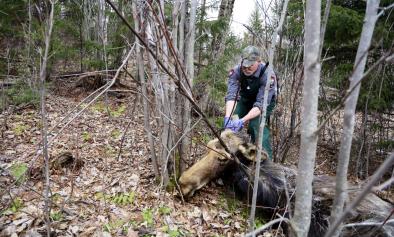Science Source
Behavioural, ecological and evolutionary responses to extreme climatic events: challenges and directions
- States that extreme climatic events (ECEs) have only recently received a strong interest in the wider ecological and evolutionary community. However, as with many rapidly expanding fields, it lacks structure and cohesiveness, which strongly limits scientific progress. Furthermore, due to the descriptive and anecdotal nature of many ECE studies it is still unclear what the most relevant questions and long-term consequences are of ECEs. To improve synthesis, we first
- Discusses ways to define ECEs that facilitate comparison among studies
- Argues that biologists should adhere to more rigorous attribution and mechanistic methods to assess ECE impacts
- Discusses conceptual and methodological links with climatology and disturbance-, tipping point- and paleo-ecology—these research fields have close linkages with ECE research, but differ in the identity and/or the relative severity of environmental factors
- Draws parallels between behavioural, ecological and evolutionary ECE studies, and suggests that an overarching challenge is that most empirical and theoretical evidence points towards responses being highly idiosyncratic, and thus predictability being low
- Suggests a roadmap based on the proposition that an increased focus on the mechanisms behind the biological response function will be crucial for increased understanding and predictability of the impacts of ECE
Related Content
Science Source
| Global Change Biology
Decadal-scale phenology and seasonal climate drivers of migratory baleen whales in a rapidly warming marine ecosystem
Daniel E. Pendleton, Morgan W. Tingley, Laura C. Ganley et al
Headline

May 19, 2022 | Climate Nexus Hot News
Climate Change Great For Winter Ticks, Very Bad For Moose Calves
Science Source
Climate change increases cross-species viral transmission risk
Colin J. Carlson, Gregory F. Albery, Cory Merow et al
Science Source
| Journal of Animal Ecology
Climate change affects bird nesting phenology: Comparing contemporary field and historical museum nesting records
John M. Bates, Mason Fidino, Laurel Nowak-Boyd et al


